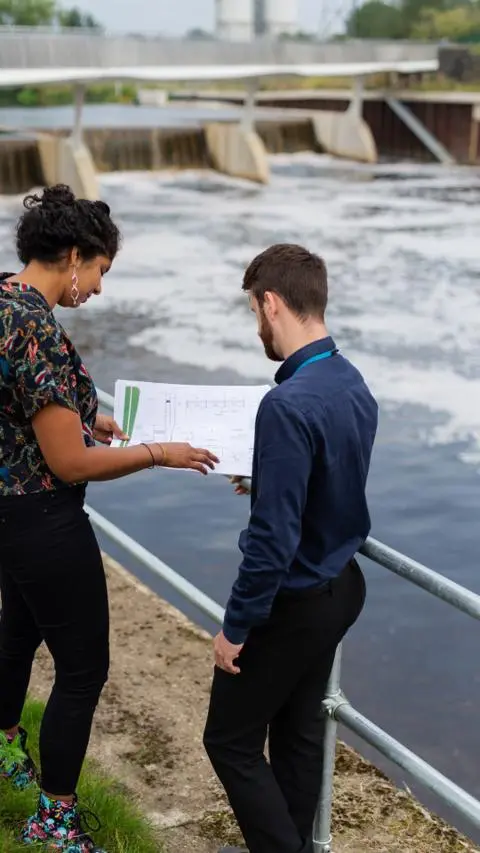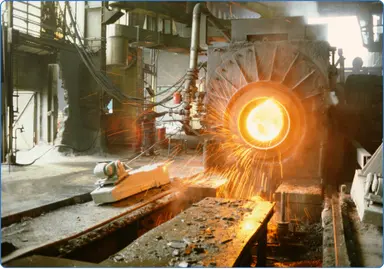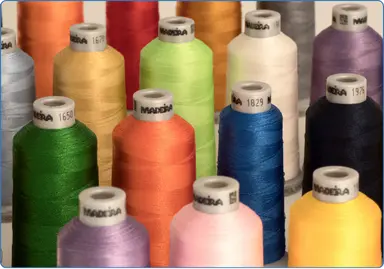Bottled Water Production
Bottled water production is a highly regulated process designed to ensure the highest standards of purity and safety for consumers. As one of the most consumed beverages worldwide, bottled water must meet strict quality guidelines to guarantee that it is free from contaminants while maintaining optimal taste and mineral balance. Advanced water treatment technologies are essential to achieving consistent water quality, ensuring compliance with regulatory requirements, and delivering a safe and refreshing product.
Water sources for bottled water production vary, including natural springs, wells, and municipal supplies. Regardless of the source, comprehensive filtration and purification processes are implemented to remove impurities, eliminate pathogens, and preserve essential minerals that enhance the water’s taste and health benefits.
Key Systems for Bottled Water Production Processes

Reverse Osmosis
Eliminates dissolved solids, bacteria, and viruses to produce high-purity water.

Ultrafiltration (UF)
Removes suspended particles, bacteria, and organic contaminants.

Activated Carbon Filtration
Removes chlorine, volatile organic compounds (VOCs), and unwanted odors or tastes.

UV Disinfection
Provides non-chemical microbial control to prevent contamination.
Applications of Bottled Water Production
- Drinking Water: Produces purified and mineral-enriched water for consumer hydration.
- Health and Wellness: Supplies high-quality water for individuals with specific dietary or health needs.
- Emergency Water Supply: Provides clean and safe drinking water during natural disasters or crisis situations.
- Commercial and Industrial Use: Ensures consistent water quality for beverage companies and food production facilities.
Advantages of High-Quality Water in Bottled Water Production
- Guaranteed Purity: Advanced filtration and disinfection processes ensure water is free from harmful contaminants.
- Regulatory Compliance: Meets international food safety and bottled water production standards, such as FDA, WHO, and EPA guidelines.
- Consistent Taste and Quality: Maintains a balanced mineral composition, providing a refreshing taste.
- Extended Shelf Life: Proper treatment prevents microbial growth, ensuring long-term product stability.
- Consumer Trust and Satisfaction: Delivers a reliable, high-quality hydration source to meet market demands.
Challenges and Solutions in Bottled Water Production
- Source Water Variability: Advanced filtration systems ensure consistent quality despite seasonal or regional differences.
- Microbial Contamination Risks: UV disinfection and ozonation eliminate bacteria and viruses effectively.
- Mineral Imbalance: Mineral dosing systems help achieve the desired composition for optimal taste and health benefits.
- Packaging and Storage Safety: Ensuring sterilized bottles and hygienic filling processes prevents contamination.
FAQs about Bottled Water Production
- How is bottled water purified? Water undergoes multi-stage filtration, including RO, UV disinfection, and ozonation, to ensure purity and safety.
- Is bottled water safer than tap water? Bottled water undergoes additional purification steps and strict quality controls, making it a reliable option.
- What is the shelf life of bottled water? Properly treated and stored bottled water can remain safe for consumption for up to two years.
- Does bottled water contain added minerals? Some bottled water brands add essential minerals to enhance taste and health benefits, while others provide purified water without additives.
- How does packaging affect bottled water quality? Using food-grade, BPA-free plastic or glass bottles ensures safety and maintains the integrity of the water’s composition.